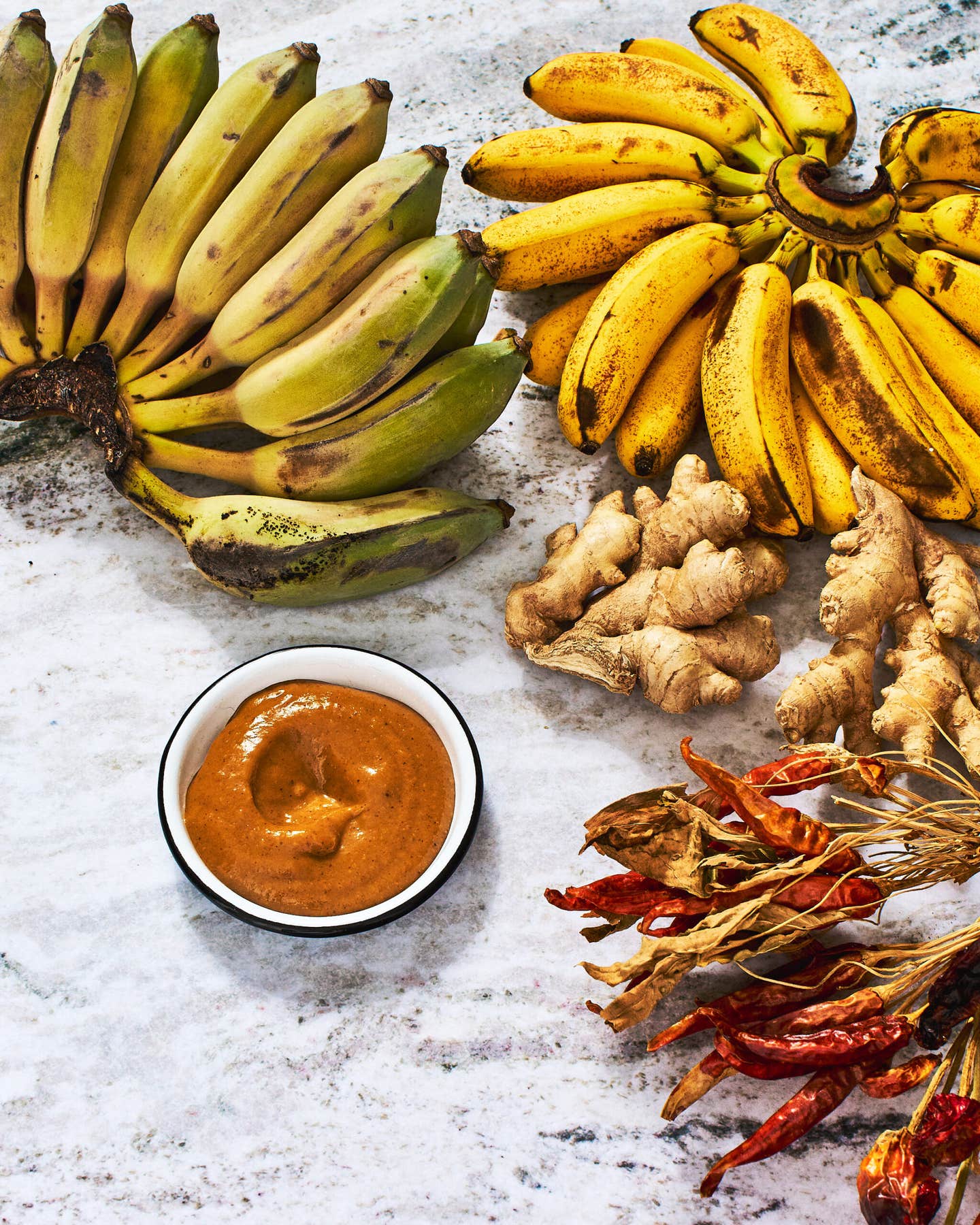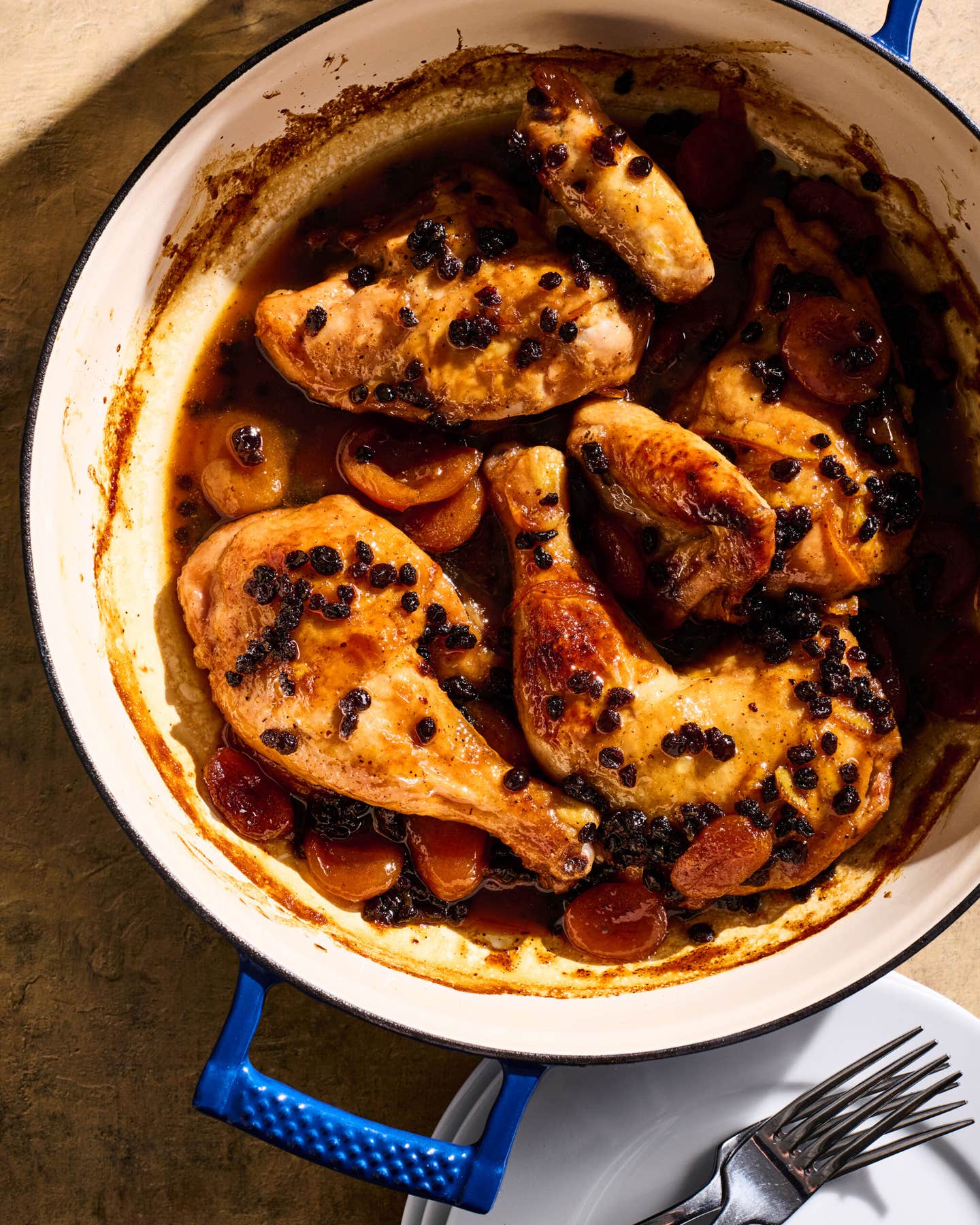Pan-Seared White Fish With Mussels, Cabbage Shoots, and Cream
- Serves
serves 4 People
- Time
2 hours 30 minutes

Danes have always loved white fish like pike and perch, which are abundant locally and are often simply breaded and fried. They’re now warming up to their coastal bounty of mussels, which are increasing in popularity on menus, according to Møller. This preparation incorporates the best of old and new, with a lightly briny and delicately foamy cream sauce, crispy seared fish, and robust cabbage shoots (another local favorite) infused with the fresh juice of the mussels.
Saveur’s resident Scandiphile eats and drinks his way through Copenhagen in search of cultural transformation
What Would it Take for an American Guy to Become Danish?
Ingredients
For the mussels and cabbage:
- 2 cups dry white wine
- 2 lb. mussels, cleaned
- 1 cup heavy cream
- 1⁄2 tsp. kosher salt, plus more as needed
- 1 tbsp. unsalted butter
- 1 lb. cabbage shoots such as kale shoots, or substitute baby kale
For the fish:
- 4 boneless, skin-on, non-oily white fish fillets (about 1 lb.), such as pike, perch, trout, or striped bass
- 1 tbsp. olive oil
- 1⁄2 tbsp. unsalted butter
Instructions
Step 1
Step 2
Step 3
Step 4
Step 5
Step 6
Step 7
Step 8
- Prepare the mussels: In a large heavy pot, bring the white wine to a boil. Add the mussels and cover; cook, shaking the pan a few times, until most of the mussels have opened, about 2 minutes. Use a slotted spoon to remove them to a large bowl, and keep warm.
- Set a fine strainer in a liquid measuring cup and strain the mussel juice into it. Rinse the large pot and set aside.
- Transfer the mussel juice to a medium pot and cook over high heat until reduced by two-thirds, about 8 minutes. Lower the heat to medium, add the cream, and cook until slightly reduced and intensified in flavor, 5 minutes. Season generously with salt.
- Meanwhile, prepare the fish: Lay the fillets skin side up, then cut small slits into the skin about every 1 inch, being careful not to cut through the fish (this will help prevent the skin from sticking to the pan). Turn the fillets skin side down, then sprinkle the flesh sides with salt. Refrigerate 2 hours if possible to help firm up the fish.
- Preheat a large, heavy-bottomed skillet until very hot but not yet smoking (on a scale of 1 to 10, the pan should be an 8). Add the oil and quickly add the fish, skin side down, holding each fillet down with a finger or spatula for about 5 seconds after adding to prevent it from curling up. Cook, watching closely, until the fish looks visibly cooked halfway through, 3–4 minutes, then add the butter to the pan. Once the butter is melted, flip the fish and remove the pan from the heat. Tilt the skillet, and using a spoon, baste the skin with the butter a few times.
- Transfer the fish to a drying rack, or pat it with a paper towel to get rid of excess butter. Keep in a warm place.
- Quickly cook the cabbage: In the large pot, combine 1 cup water, ½ teaspoon salt, and the butter; bring to a boil over high heat. Add the cabbage shoots and cook, tossing with tongs a few times, until wilted and tender, 3–4 minutes. Add the mussels and toss to rewarm. Using a slotted spoon or strainer, transfer the mussels and greens to a serving bowl, discarding the liquid.
- Working quickly with an immersion blender, froth the cream sauce by blending it just beneath the surface with the blender at a 45° angle (you can skip this step if desired). Use a serving spoon to hold back the foam as you pour the cream sauce over the mussels, then spoon the foam on top. Serve immediately with the fish.
Keep Reading
Continue to Next Story










